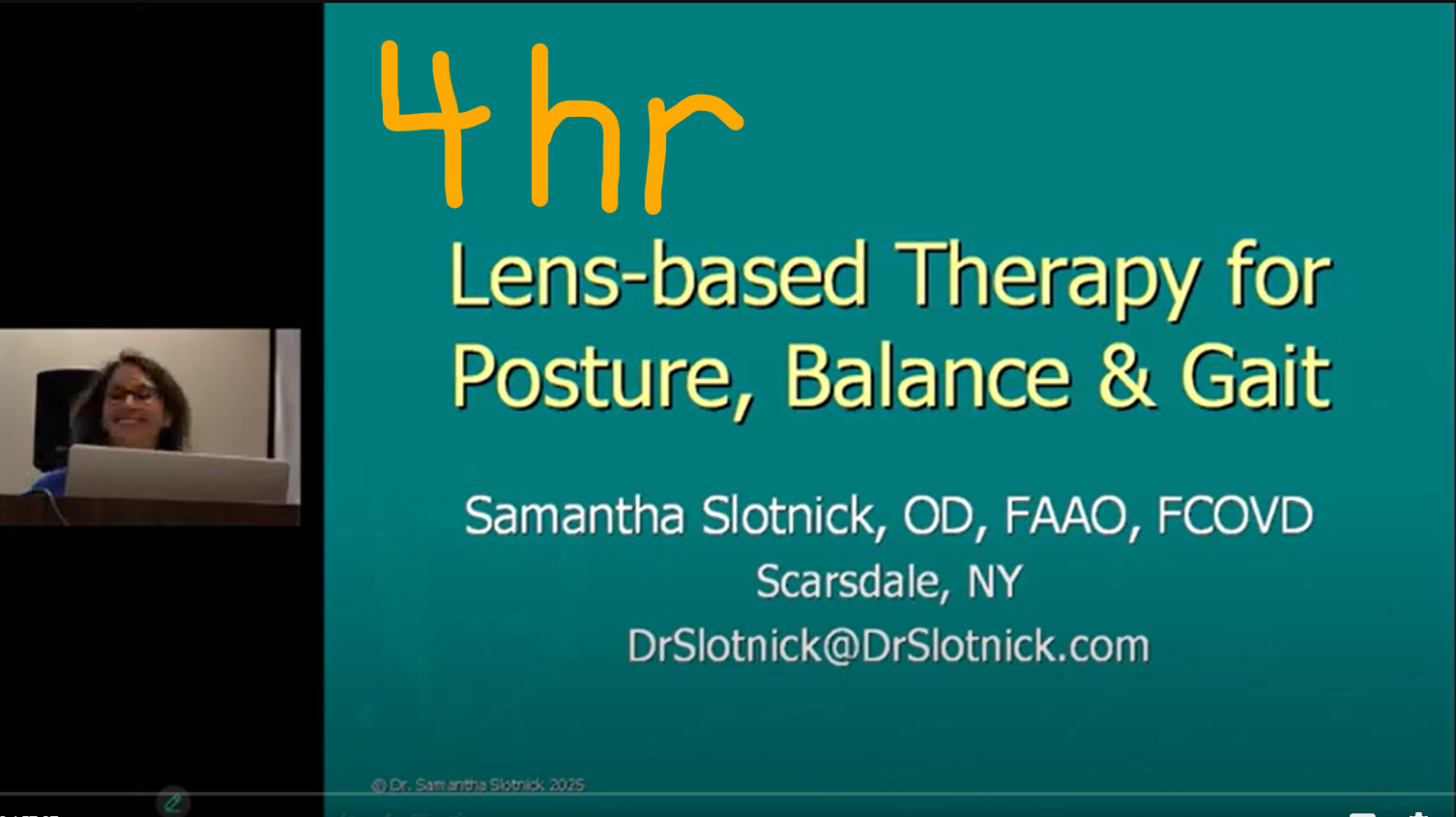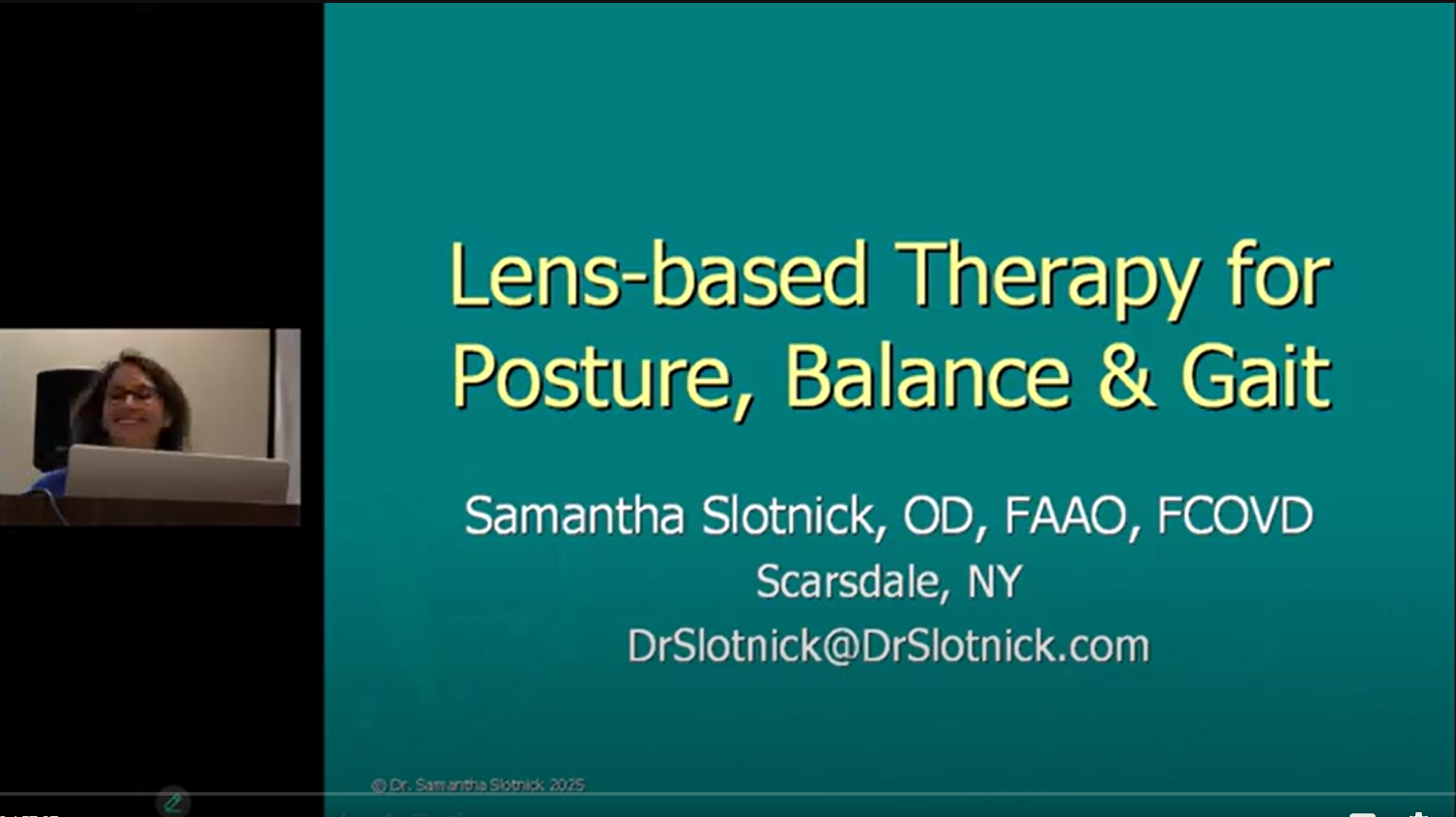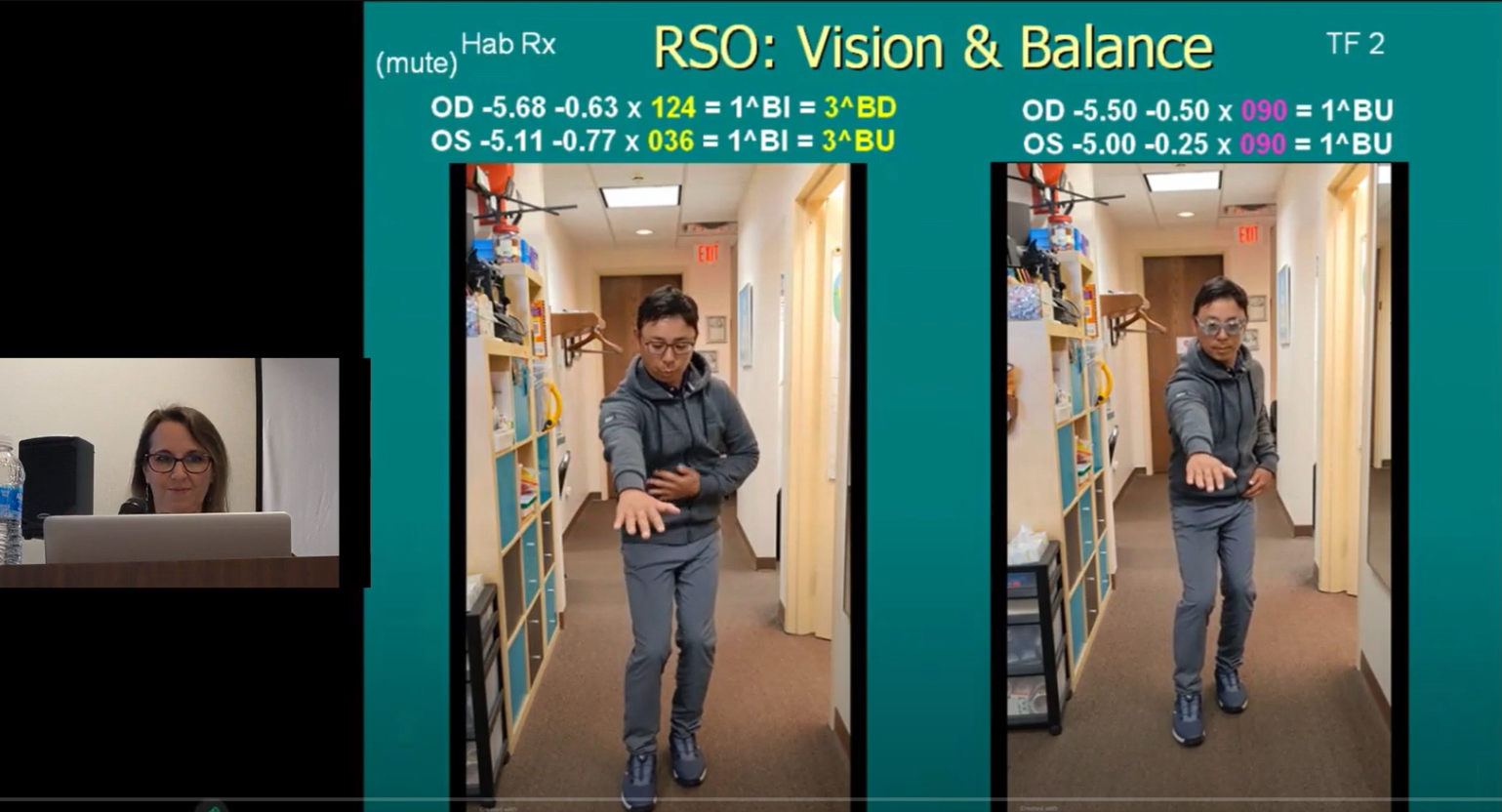As optometrists, we have an extraordinary potential to support our colleagues who specialize in Movement, Posture, and Physical Therapy. Employing lenses which help our patients become more passively aware of their spatial environment helps them enjoy freedom of movement with a lower energy demand. With Lens-based Postural Therapy, our patients benefit from a new foundation on which to build their physical therapy and sense of body organization.
The visual system is the USER INTERFACE between the world we see and the bodies we animate.
The material introduced here is being made accessible to help patients find and cultivate collaborative relationships between their providers of care in body work (e.g., Physical Therapists, Osteopaths, Craniosacral Therapists, Chiropractors, and various Movement Specialists) and open-minded Optometrists in their home areas. (For a lay-person introduction to this material, please visit our main website: Lens-based Postural Therapy.)
The first half hour of the seminar has been made available below (scroll down for video), setting the stage for the purpose of the material and the presentation style. What follows is a 4-hour series of lectures, presented at Great Lakes Optometric Congress at Northbrook, IL, on March 2-3, 2025. These are two 2-hour lectures, and you may reference the handouts as well (links provided with access purchase). Attendees also engaged in some hands-on exploration between lectures.**
**An interactive, workshop-oriented opportunity to explore this material has already been scheduled for the next Great Lakes Optometric Congress, for March 1-2, 2026!**
The first lecture, Lens-based Postural Therapy, provides novel concepts on the utilization of low-powered cylinder lenses for their spatial properties, rather than for refractive clarity. This lecture may serve as a stand-alone course. It is complemented by the Cyclophoria Lens-based Treatment & Management course.
VISION directs ACTION!
For many patients, the Visual System takes the lead in directing action. For countless patients, the body has become a slave to our visual patterns and habits. We subconsciously tilt or turn our heads to maintain single binocular vision. We crane our necks forward to immerse ourselves in our cognitive work. Wearing lenses which reinforce our historical ways of seeing may significantly impede progress with PHYSICAL therapy programs.
Optometrists can play a VITAL role in providing relief for these patients with:
- Chronic neck problems
- Compromised breathing/ airway management
- Loss of balance and stability following a concussion or brain injury
This course demonstrates how LENSES can be applied like “Orthotics for the Eyes”:
- Lenses influence visual PERCEPTION!
- They help patients passively experience an organized framework of space.
- They can help reinforce the sense of the ground by emphasizing the horizon.
- They can help expand one’s sense of volume and depth, by highlighting the visual verticals, inviting a greater degree of binocular synergy than the patient may be exercising in absence of the subtle cues of lenses.
- Strategies are presented for enhancing a patient’s posture and movement, including torsion of the torso, anterior/ posterior biases of body mass, left/right weight-bearing biases, and head-tilting.
The second lecture, Cyclophoria Treatment & Lens-based Management, explores these concepts in greater depth (pun intended). Cyclophoria assessment is not included in the standard binocular testing battery. As a result, subtle cases are rarely diagnosed. Instead, they are often misattributed as vertical phorias. However, in these patients, vertical compensatory prism can further embed the cyclodeviation, adding to binocular fatigue, neck strain, tunneling visual fields, and loss of place when reading.
Convenient methods of screening for cyclophoria are introduced as a quick extension to standard phoria testing. Cyclophorias are often present in patients with abnormal head postures (tilting or turning). This mild binocular imbalance can be treated effectively with the novel use of cylinder for spatial orientation, supporting binocular fusion as well as integration across the body midline. Examples are provided for greater reciprocal movement during gait with subtle adjustments to the relationship between cylinder axes OD and OS.
Finally: Optometrists, We Need You!
Thank you for taking the time to explore these concepts.
Our office receives requests and referrals for many patients seeking visual support for their physical enhancement. We are hoping to build a network of capable Vision Care Pioneers who are willing to help these patients let go of old habits, and to provide lenses which set the stage for whole-body integration. If you are open to providing this work for patients in your area, anywhere on the globe, please email me with the subject “Lens-based Therapy Optometrist,” and let me know your location(s). We will be grateful to be able to refer to you, and to list you as a resource for this kind of work. Case-based consultations can be arranged on request.
PREVIEW the Introduction to Lens-based Postural Therapy Seminar BELOW:
Viewing options:
To view the complete lectures, please select a course below (the complete 4 hour series, or 2 hour segments). You will receive an email with a link to a PASSWORD PROTECTED website.
The link is followed by the PASSWORD you will need for access.
After payment is processed, you will then receive an email (from info@drslotnick.com) with a link to view the Webinar(s) as well as the course handouts.



Your cart is empty


Recent Comments